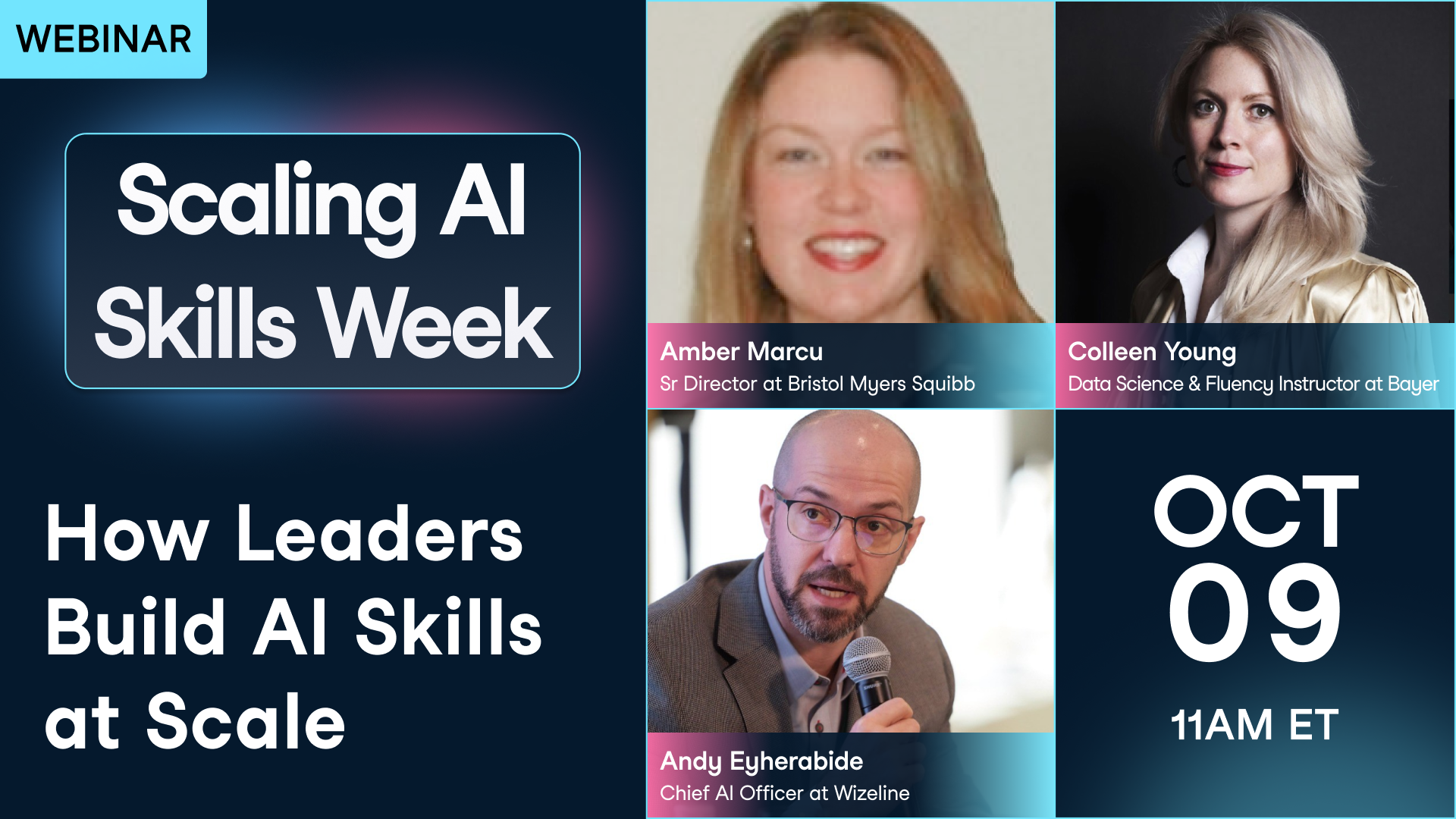Vortragende
Training für 2 oder mehr Personen?
Dein Team erhält Zugang zur vollständigen DataCamp-Bibliothek mit zentralisiertem Berichtswesen, Übungsaufgaben, Projekten und mehr.How Leaders Build AI Skills at Scale
October 2025
Verwandt
webinar
AI Literacy at Scale: Building a Future-Ready Workforce
Industry experts explore strategies for scaling AI literacy across diverse teams, bridging the gap between technical expertise and business understanding.webinar
Running Data & AI Literacy Training at Scale
Industry experts share what it takes to run successful training programs across large, complex organizations.webinar
The Executive Guide to Data & AI Literacy
Experts share how to design and implement a literacy strategy that works. Hear practical lessons on training at scale, increasing data and AI maturity, and identifying the highest-impact use cases.webinar
AI Upskilling: Lessons from the Frontlines
Experts discuss their experiences running AI upskilling programs at scale. You’ll learn how to define training personas, boost adoption and engagement, and measure the ROI of your efforts.webinar
Scaling Data & AI Literacy with a Persona-Driven Framework
In this session, three experts walk you through the steps of creating a successful data training program.webinar


